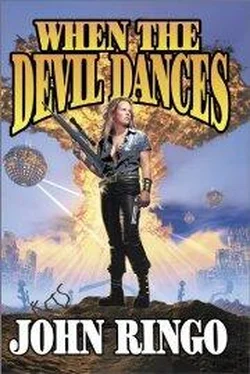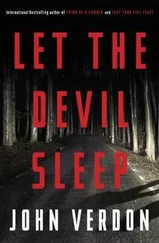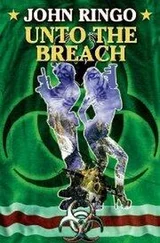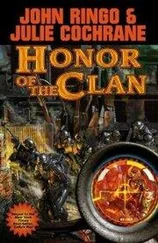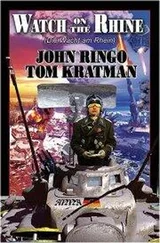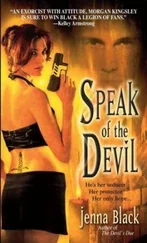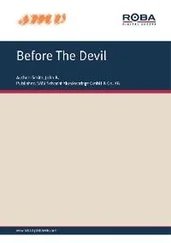“Throughout the history of man, small forces facing overwhelming odds have been remembered in storied song. The small Greek force at Marathon that defeated a Persian force that outnumbered it a hundred to one. The Rhodesian SAS team that accidentally ran onto a regimental review of guerrillas and wiped them out. The Heroes of Thermopylae. The Alamo. The Seventh Cavalry.”
He paused and looked around at the silent, blank-faced suits. He knew from experience that better than half of them were composing an e-mail or listening to music or looking for some new and better porn. But what the hell.
“Given our situation, I think the last three are most significant,” he continued, pulling out a dip and putting it in. Spitting to clear his mouth, he looked at the sky. “Today we fly to take and hold a pass. We will do so until we are out of bodies or power or ammo. I’m not sure which we’ll run out of first. All things considered, probably bodies.
“We few, we happy few, we band of brothers. In years to come, men at home now in their beds will think of this day and do you know what they will say? ‘Jesus, I’m glad I wasn’t with those poor doomed ACS assholes or right now I’d be dead.’
“But what the hell; that’s why they pay us the big bucks. Board ships.”
There was supposed to be, there originally was, a long, mildly humorous acknowledgments section here. Of course, I was working on this novel on 9/11. And then, as “they” say, the world changed.
Well, “they” are wrong. “The world” did not change on 9/11, our country did. In the author’s afterword to Gust Front I commented that “we are living in a Golden Age, with all its strengths and ills.” That Golden Age met a distinct reality check on 9/11. The event, more than anything, woke many of us up.
It didn’t wake me up, I was already awake. I’d been awake since I was eleven or twelve and an ammunition ship blew up in Beirut harbor. Of course, I was about ten blocks away at the time, so it was… rather noticeable. “Loud” doesn’t cover it. The world has always been a very hostile place, more so for Americans in the latter half of the twentieth century than for any other group (with the possible exception of Jews). People in the developing nations come in two distinct brands: they love America or they hate it. I never, in all my travels, met one person who was just flat ambivalent. Being awake was one of the reasons I gave my body to Uncle Sammy. I knew there were barbarians at the gates, even if nobody else heard the thumping.
What has always seemed distant to many Americans has always been real and close to me. I have had to wonder how many of my schoolmates were in the crowd that stormed the embassy in Teheran. I’ve had to wonder if my best friend from fifth grade died in the Bosnian conflict. And I’ve always wondered what “it” was going to be. What “it” was that was going to sufficiently shock my fellow countrymen out of their complacency. Was “it” going to be a nuke in Washington? Or smallpox? Or anthrax?
As things turned out, “it” was destroying the Twin Towers.
In WWII, for the British, “it” was the invasion of Poland, and even more so the invasion of France. For the U.S. “it” was Pearl Harbor. Democracies require an “it,” a defining moment when the call to arms is so clear that the most complacent hear the trumpets.
Where we are going in the future is uncertain. We may yet descend into cataclysmic warfare to dwarf my books. Or we may “change the paradigm” and hammer through on the backs of our elite. I don’t know what we shall find in the tunnel ahead. I do know this, though. That is all that it is. A dark tunnel. There is a light at the end; it is not another train, it is the future. We will create that future as Americans always have: a better, brighter future.
All we need do, as a nation, is drive through to the end.
They shall not grow old, as we that are left grow old,
Age shall not weary them… nor the years condemn.
At the going down of the sun, and in the morning,
We will remember them!
— Lawrence Binyon
John Ringo
Commerce, GA
October 5, 2001
abat — Small, generally inoffensive Posleen pest.
Attenrenalslar — Five percenter Kessentai in Rochester.
Blastplas — Material that blastdoors are made from.
Castleman Avenue — One side (the east) of the “box” in Rochester.
Chengdu — City near western limit of Posleen advance in China.
Cholosta’an — Junior Kessentai.
chorho — Birthplace.
cosslain — Superior normal.
defib — Defibrillator.
devourers — Digging machines.
Drasanar — “Patrolmaster,” operations officer in charge of patrols.
edas — Set-up debt. Also any general debt.
eson’sora — Junior officer/protégé.
Essthree — S-3, Operations.
Esstu — S-2, Intelligence.
estanaar — Greater Warleader/Khan.
Forty-Three — Uncompleted SheVa.
Forty-Two — SheVa in Rochester.
Galplas — Standard Galactic structural material.
grat — Malicious Posleen pest. Only eats abat. Similar in appearance to a large wasp. Very territorial and aggressive.
Halligan — Type of entry tool.
Irmansul — Darhel planet currently under attack by the Posleen.
Kenstain — God Kings who act as castellaine.
Kerlan — Posleen name for Barwhon.
Luoxia Shan — Mountainous region in China.
micrite — Small UAV, larger than a nannite.
oolt — Posleen company.
oolt Po’osol — Lamprey. Holds Posleen company and Kessentai.
oolt’ondai — “Colonel,” brigade/battalion commander.
oolt’ondar — Brigade (B-Dec unit)/battalion (C-Dec unit).
oolt’os — Posleen normal.
oolt’po’slen’ar — C-Dec. Holds four Posleen companies (oolt’ondar). Commanded by an oolt’ondai.
orna’adar — Posleen Ragnarok.
Orostan — Senior Posleen. Oolt’ondai.
Pendergrass Mountain — Mountain near Franklin, N.C.
plasteel — Galactic armor.
polylon — Galactic weaving material.
Po’oslena’ar — Posleen.
PreserFilm — Weapon sealing material.
Ramsardal — Kessentai. Casualty in Clayton.
Staraquon — Posleen S-2.
Teneral — Flying tanks.
thresh’c’oolt — Posleen iron rations.
Westbury — Area on the Ontario Plain.
Xian — City in Eastern China. Last major defensive action on the part of the Chinese.
Читать дальше
